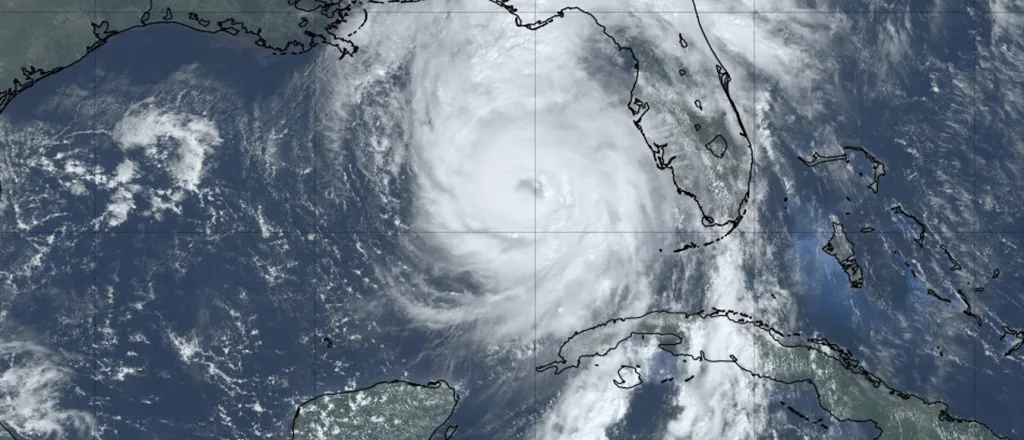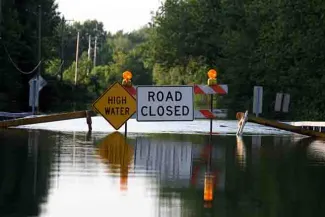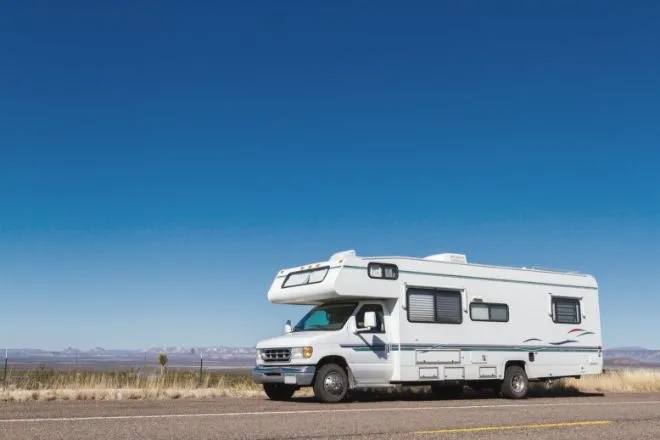
How Helene ravaged one North Carolinian’s property — and undermined her faith in government
Courtesy NOAA
Athene Grant remembers hearing the trees start to fall.
She sat on the couch, looking out of windows covered in shredded leaves and calming her dog Denali as the wind howled and rain poured.
“Everything was moving,” she told NC Newsline. “There were all of these unknown sounds. These booms, this crackling.”
At first light, she and her partner went outside to survey the damage outside their Bakersville home. When they walked down their driveway, they saw a massive hole. A landslide had ripped down the mountain, tearing up the driveway and the private access path connecting to the main road.

© iStock - djperry
More than just being an eyesore, it cuts off direct access for vehicles to reach a group of four homes occupied by seniors and a person with a disability. Locals have given her informal estimates of $100,000 to get it fixed.
But she can’t know for sure. In the two months since Hurricane Helene wreaked havoc on western North Carolina, Grant hasn’t been able to get anyone to inspect the landslide — or even visit the property.
“The slide from here, the mud was across Cane Creek Road, a major artery,” she said. “They came, and they scraped it away. And nobody came up to say, hey, is anybody alive up here?”
“You can see the scar, you can see the red mud all the way down the mountain.”
Helene’s unprecedented damage in the mountains has led to an unorthodox recovery effort — with countless remote communities across 18 counties, and tens of billions’ worth of damages.
Big questions remain on how to tackle a years-long rebuild — and specifically where the money will come from to fix private roads. State legislators return to Raleigh December 2, while Congress continues to negotiate federal aid.
In the meantime, western North Carolinians like Grant and her neighbors are left feeling like they fell through the cracks.
‘My government has basically washed their hands of me’
The 67-year-old Grant, a home health nurse, moved to her home outside the 400-person Bakersville three years ago. She came to Mitchell County from Sarasota, Florida — an unsuccessful escape from hurricanes, she joked.
She and her partner, Michael Ignatowski, 70, own two of the other homes along the mountain road and rent them out to lower-income residents.
After the worst of Helene had passed, they emerged onto the storm-torn property. One home, whose resident had left before the storm, had a tree through the middle of the roof, with the walls buckling outward. More than 20 trees were down between Grant’s home and the main road. They had lost electricity, cell service and clean water.

© iStock - ArtemSam
The pair got chainsaws and began hacking through trees, cutting a path back to the main road. After three days, workers with a solar company showed up and made quick work of the rest.
They hauled a generator from their barn, and grilled out for meals. Water came from the spring down the hill, and had to be boiled. To get down to the main road, they had to use their 20-year-old golf cart.
About five days after the storm, a military helicopter landed at the bottom of the hill. Friends and family who live down south had reported Grant and Ignatowski as missing, unable to get ahold of them. The helicopter had come to evacuate them.
“We said no,” she said. “We have a dog and a cat. We’re not leaving. I said, use your resources elsewhere.”
Once the trees were cleared, Grant began asking for help.
At a Bakersville town hall meeting, she spoke with the county manager. She reached out to staff for state Sen. Ralph Hise (R-Mitchell), who elevated her to U.S. Rep. Virginia Foxx’s office in Washington. She’s called the emergency services hotline, and been down to her local FEMA office five separate times, she says, to put in a request for inspection.
“I’ve paid my taxes. We’ve paid our taxes,” she said. “And we don’t understand why this is happening. This is not our fault.”
“We don’t use plastic. We think about when we’re going to drive. For years, I’ve bought clothes from Goodwill… I don’t believe in buying new things, because of climate change. And now this happens. And my government has basically washed their hands of me.”
One day, after washing with water from the spring down the road, Grant contracted a urinary infection — likely from not boiling it long enough. Nursing a 104 degree fever at 5 a.m., she got in her golf cart to meet the ambulance waiting at the bottom of the road.
‘All you want to do is cry’
Grant understands the reality of the situation. Officials who are helping rebuild are focused on repairing major roads and bridges, to communities and homes that are completely inaccessible.
But she’s seen her neighbors’ frustrations first-hand too — at the town meeting in Bakersville, “everybody had a question.”
“These are the answers that thousands of people need to have,” Grant said, fighting back tears. “How do you navigate this, through your own trauma, when you just come home and all you want to do is cry? Because there is no end in sight for us.”
It remains to be seen whether officials will work out an agreement to help pay for Helene’s damage to private property. But if Grant is left to foot the bill, she has no idea how she’d pay for it.
Part of her wants to move on — “I would love to just sell and leave.” But the property remains inaccessible to the general public, and she’s helping care for a renter who has a disability.
Her patients around the county are what keep her focused. Some are traumatized, she says — suffering persistent headaches and anxiety.
“The only thing that keeps me going right now is to go out there, and know that people wait for me,” Grant said, fighting back tears.
“They want to see me, I’m giving them hope. And then I come home, and I fall apart.”
NC Newsline is part of States Newsroom, a nonprofit news network supported by grants and a coalition of donors as a 501c(3) public charity. NC Newsline maintains editorial independence. Contact Editor Rob Schofield for questions: info@ncnewsline.com. Follow NC Newsline on Facebook and X.















